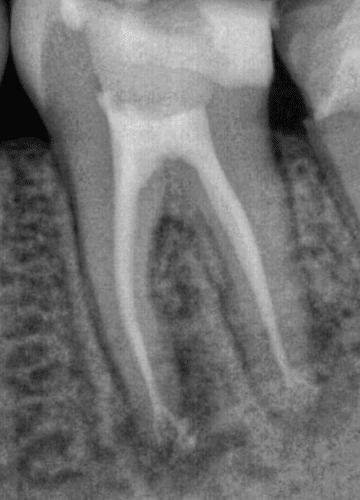
Dental patients in Gilbert, AZ can now receive expert oral surgery from John A. Garza DDS. Dr. Garza is a highly experienced oral surgeon who has been serving the community for many years. He offers a wide range of oral surgery services, from wisdom teeth removal to dental implants.
Patients can rest assured that they are in good hands with Dr. Garza. His commitment to quality care and patient satisfaction sets him apart from other dentists in the area. If you are looking for an Oral Surgeon in Gilbert, AZ, look no further than John A. Garza DDS!
What is an Oral Surgeon?
Oral and maxillofacial surgery involves procedures that are performed on the face, jaw, and mouth. Surgical procedures on the gums and bones that support your teeth are performed by a periodontist, sometimes known as a gum specialist. After graduating from dentistry school, candidates for the specialties of oral surgeon and periodontist are required to complete an additional three to four years of education.
Oral and maxillofacial surgeons have undergone extensive training to enable them to diagnose and treat a wide range of disorders that can affect the face, mouth, and jaw. When a patient presents with an issue that is outside of the area of expertise of a regular dentist, they are often referred to an oral surgeon.
Oral surgeons are the only medical professionals qualified to undertake simple and sophisticated tooth extractions, including the removal of wisdom teeth. In addition to this, they offer care to victims of accidents who require reconstructive dental surgery. Some of the additional procedures oral surgeons may undertake are biopsies of soft tissue, excision of tumors, surgery to realign the jaw, repair of soft tissue, and placing of implants.

Most Common Oral Surgeries
Facial Trauma
Accidents involving motor vehicles, unintentional falls, injuries sustained during sports, animal bites, bites from other people, interpersonal aggression, and injuries sustained on the job are some potential causes of facial injuries trauma. Injuries to the teeth can range all the way up to highly serious damage to the skin and bones of the face, which are also considered types of facial injuries. In general, facial injuries are separated into three categories: injuries to soft tissue (such as the skin or gum tissue), injuries to bone (such as fractures), and injuries to particular regions (such as the eyes, the sinuses, facial nerves, or the salivary glands).
Soft Tissue Injuries of the Face, Neck, and Scalp
Suturing is used to treat facial soft tissue injuries such as lacerations. In addition to the obvious issue of achieving the greatest possible cosmetic result, attention is made to look for and treat injuries to structures like facial nerves, salivary glands, and salivary ducts (or outflow channels). Due to the considerable training that he has received, Dr. Garza has the experience necessary to treat a wide variety of soft tissue injuries that can affect the face, neck, and scalp.
Injuries to the Teeth & Surrounding Dental Structures
It is not uncommon for people to sustain isolated injuries to their teeth, which may ultimately require the services of a variety of dental professionals. Most of the time, Dr. Spanganberg is called upon to heal fractures in the bone that supports the teeth or replant teeth that have been dislodged or knocked out entirely. In its various forms, splinting is the typical treatment for injuries of this nature (stabilizing by wiring or bonding teeth together). If a tooth is knocked out, it should be placed in either saline (salt water) or milk.
The sooner the tooth is placed back into its socket, the greater the likelihood that it will continue to function normally. When an injury of this nature takes place, it is imperative to seek medical attention as quickly as possible from a dentist or an oral surgeon. Never attempt to clean the tooth since there are still vestiges of the ligament holding the tooth in the jaw attached to it.
These remnants are essential to the success of transplanting the tooth. Therefore you should never attempt to remove them. Other dental specialists, such as endodontists, who may be asked to perform root canal therapy, and/or restorative dentists, who may need to repair or replace damaged teeth, may also be needed. These dentists may be contacted if necessary. Dental implants are used to restore a person’s smile if they cannot have their natural teeth salvaged or restored due to damage.
Common Oral Surgery Procedures
Oral Surgery focuses on the surgical diagnosis and treatment of diseases, injuries, and anomalies affecting the mouth and teeth’ hard and soft tissues.
Tooth Extraction
Extraction of a tooth may be necessary if there is excessive tooth decay, an infection of a tooth, or excessive crowding of the teeth. People who obtain braces could require the removal of one or two teeth in order to provide space for their other teeth as they shift into place. In addition, those who are going through chemotherapy or about to receive an organ transplant may need to have their teeth extracted to maintain good oral health. This may be necessary.
A tooth can be extracted by a dentist or an oral surgeon and is a process that can be done as an outpatient surgery with either local, general, intravenous, or a combination of these types of anesthesia. An extraction is a quick and easy way to remove visible teeth. It is necessary to perform a more complicated surgery on teeth that are either fractured, below the surface, or impacted.
Wisdom Teeth Extraction
Extraction of one or more wisdom teeth is a surgical treatment that removes one or more of the permanent adult teeth that are located at the back corners of your mouth on the top and bottom. Alternatively, wisdom teeth are known as third molars.
It is likely that you may need to have wisdom teeth extracted if it is impacted, which means that it does not have enough space to erupt into the mouth normally. This can lead to discomfort, infection, or other dental issues. Oral surgeons and dentists both have the capability of removing wisdom teeth.
Even if impacted teeth aren’t causing any issues at the moment, some dentists and oral surgeons nevertheless recommend having wisdom teeth out in order to prevent issues that could arise in the future.
Gum Graft Surgery
Gum graft surgery is a procedure that involves covering the exposed tooth roots, which have become visible as a result of extensive gingival recession, with gum tissue in order to prevent further recession and loss of bone.
Additionally, the operation lessens the sensitivity of the patient’s teeth, safeguards the root from decay, and enhances the appearance of the patient’s smile. In order to conceal the exposed root during the surgical procedure, a soft tissue graft may be removed from your palate or other areas of your mouth. This procedure can be carried out on a single tooth or on a number of teeth all at once.
Dental Implants
It is generally agreed that dental implants are the most reliable and long-lasting alternative for replacing missing teeth. These miniature threaded posts, composed of zirconia or titanium of medical quality, are implanted into your jawbone to replace the tooth roots that have been lost. After the implants have sufficient time to recover, they can have dental crowns, dental bridges, or dentures attached to them to complete the restoration process.
Schedule A Consultation
Our oral surgery location in Gilbert, Arizona, is committed to providing our patients with diagnostic services and treatment options that are not only comfortable but also cutting edge. This is achieved by utilizing the most cutting-edge technology currently available and approaching each therapy with a mindset centered on the patient. Schedule a consultation today.

